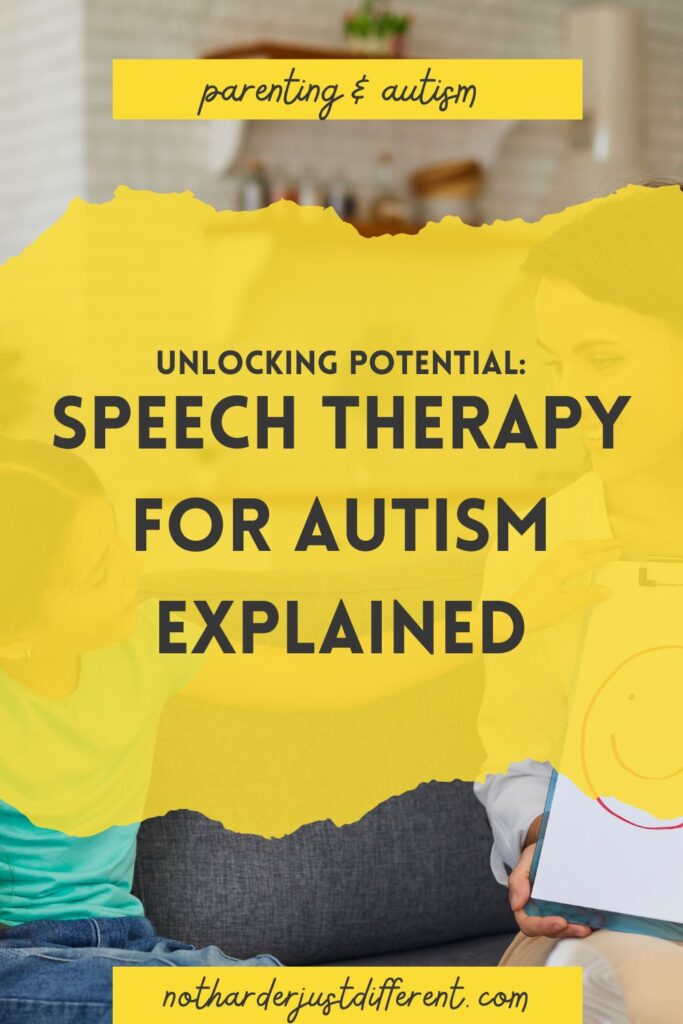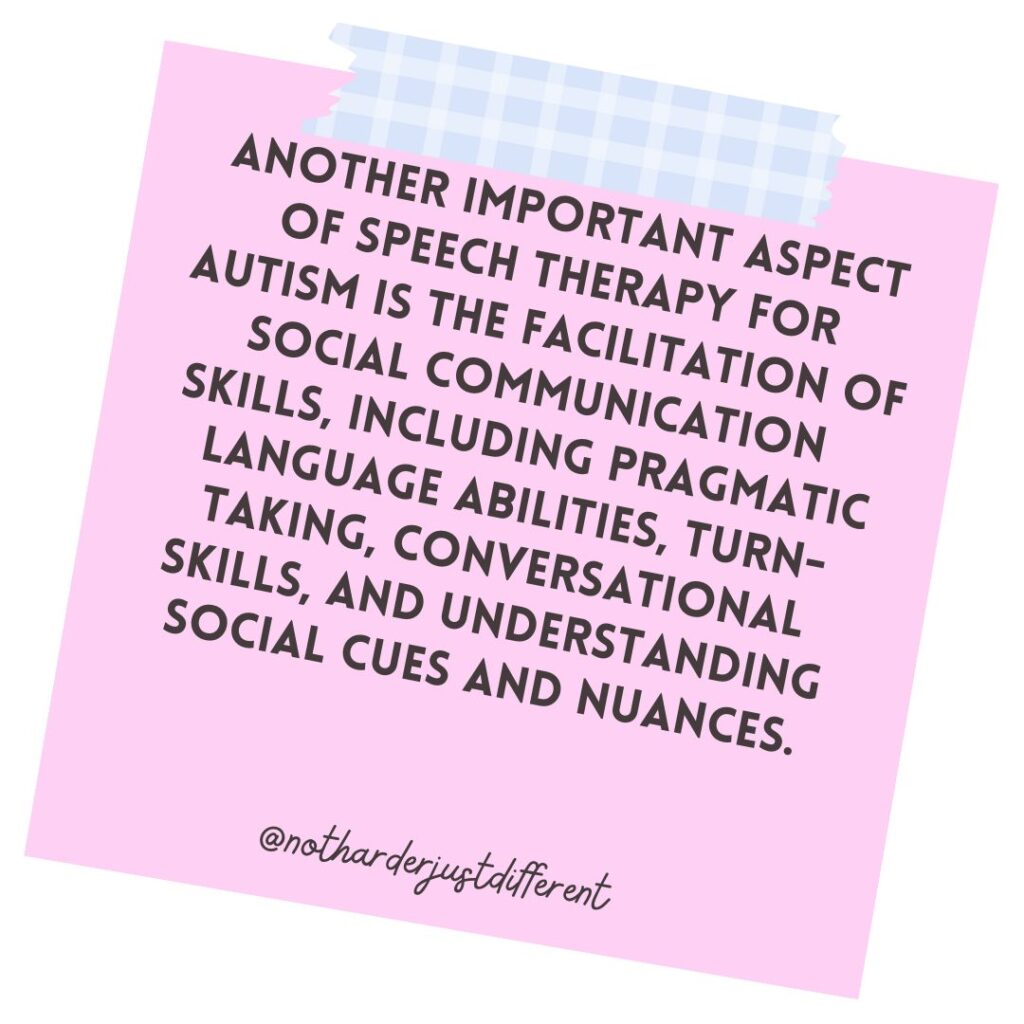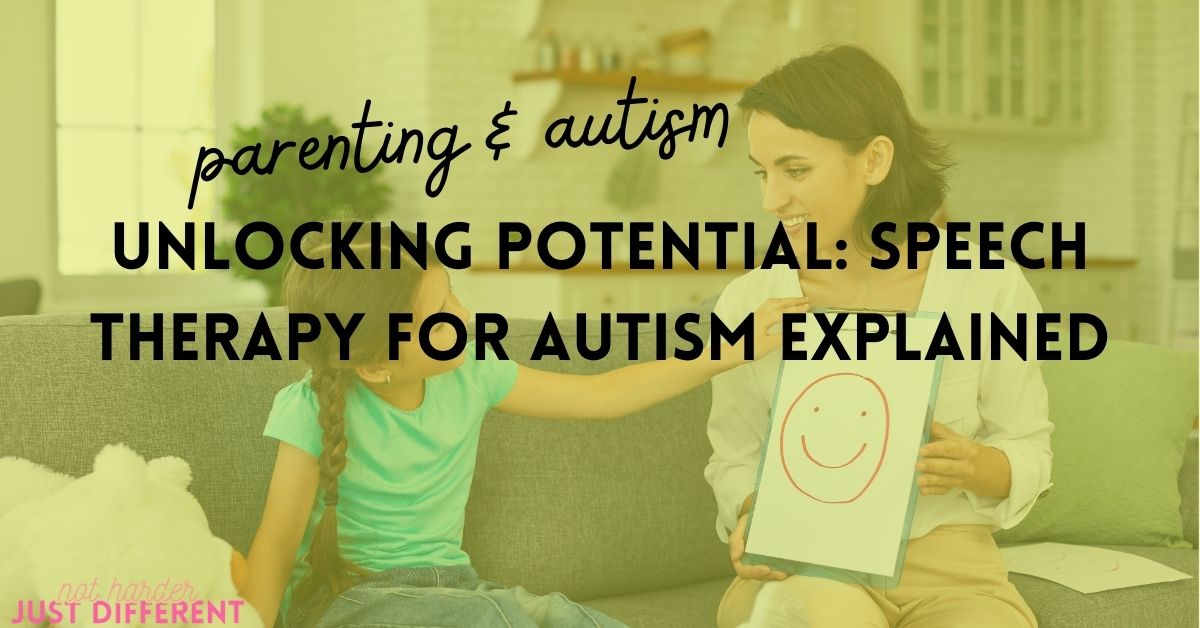Disclaimer: As a future Licensed Clinical Social Worker (LCSW) currently pursuing my master’s degree, I am passionate about sharing insights and information related to parenting, autism and homeschooling based on my personal experiences and research. However, the content shared on this blog is not intended to substitute professional advice, diagnosis, or treatment. Parenting is a deeply personal journey, and while I strive to provide valuable insights, every family and situation is unique. Readers are encouraged to consult with qualified professionals for personalized guidance tailored to their specific needs and circumstances.
Speech therapy plays a crucial role in supporting individuals on the autism spectrum in developing essential communication skills, fostering social interaction, and enhancing overall quality of life. Whether it’s improving language abilities, enhancing social communication, or addressing speech challenges, speech therapy offers a wealth of benefits for children with autism.
Speech therapy for autism encompasses a wide range of interventions and techniques aimed at addressing communication difficulties, speech delays, and social communication challenges commonly experienced by individuals on the autism spectrum. Through structured activities, individualized interventions, and evidence-based approaches, speech therapists work collaboratively with individuals with autism and their families to support language development, enhance social interaction, and promote effective communication skills across various contexts and settings.

Benefits of Speech Therapy for Autism
Enhancing Language Development
One of the primary goals of speech therapy for autism is to enhance language development and communication abilities in individuals on the spectrum. Speech therapists utilize a variety of techniques, such as picture communication systems, augmentative and alternative communication (AAC) devices, and language modeling strategies, to help individuals with autism develop functional language skills, expand vocabulary, and improve expressive and receptive language abilities. By targeting specific areas of language difficulty, speech therapy empowers individuals with autism to communicate their wants, needs, thoughts, and feelings more effectively, fostering greater independence and self-expression.
Improving Articulation and Speech Clarity
Speech therapy also focuses on improving articulation and speech clarity in individuals with autism who may experience challenges with speech production and pronunciation. Speech therapists assess speech sound errors, oral motor coordination, and phonological patterns to identify areas of difficulty and develop targeted intervention plans to improve speech intelligibility and clarity. Through exercises, drills, and articulation therapy techniques, speech therapy helps individuals with autism produce speech sounds accurately, enhance oral motor control, and increase overall speech intelligibility, enabling clearer and more effective communication with others.

Facilitating Social Communication Skills
Another important aspect of speech therapy for autism is the facilitation of social communication skills, including pragmatic language abilities, turn-taking, conversational skills, and understanding social cues and nuances. Speech therapists work with individuals with autism to develop pragmatic language skills, such as initiating and maintaining conversations, interpreting nonverbal cues, and understanding social rules and expectations. By practicing social scripts, role-playing scenarios, and participating in group activities, individuals with autism learn how to navigate social interactions more effectively, foster friendships, and build meaningful relationships with peers and caregivers.
Addressing Feeding and Swallowing Difficulties
Speech therapy also plays a crucial role in addressing feeding and swallowing difficulties, which may be common among individuals with autism due to sensory sensitivities, oral motor challenges, and aversions to certain food textures or tastes. Speech therapists assess oral motor function, swallowing mechanics, and feeding behaviors to identify underlying difficulties and develop personalized intervention plans to improve oral motor coordination, increase food acceptance, and promote safe and efficient swallowing. By incorporating sensory-based approaches, desensitization techniques, and gradual exposure to new food experiences, speech therapy helps individuals with autism expand their food repertoire, enjoy mealtime experiences, and maintain adequate nutrition and hydration.
Supporting Alternative Communication Methods
For individuals with autism who have limited verbal communication abilities or who may be nonverbal, speech therapy can support the use of alternative communication methods, such as sign language, picture communication systems, and augmentative and alternative communication (AAC) devices. Speech therapists assess communication strengths and preferences and work collaboratively with individuals and their families to select and implement appropriate AAC systems and strategies to support expressive and receptive communication needs. By providing training, support, and ongoing therapy, speech therapy empowers individuals with autism to effectively communicate their thoughts, needs, and desires, enhance social interaction, and participate more fully in daily activities and social environments.
In conclusion, speech therapy for autism offers a wealth of benefits and opportunities for individuals on the spectrum to develop essential communication skills, foster social interaction, and enhance overall quality of life. Through personalized interventions, evidence-based approaches, and collaborative partnerships with individuals and their families, speech therapists empower individuals with autism to overcome communication challenges, achieve their potential, and thrive in a world of endless possibilities.

